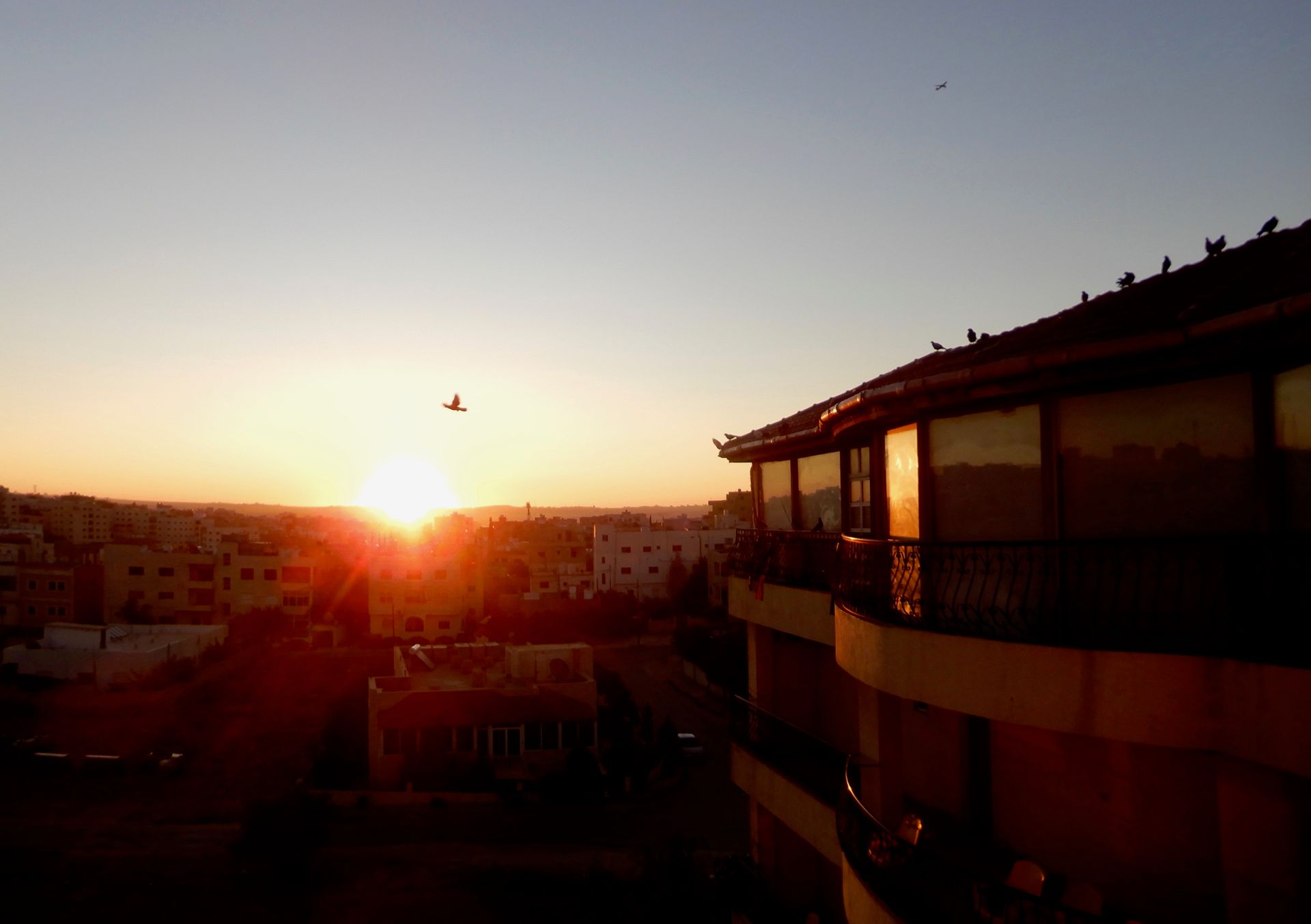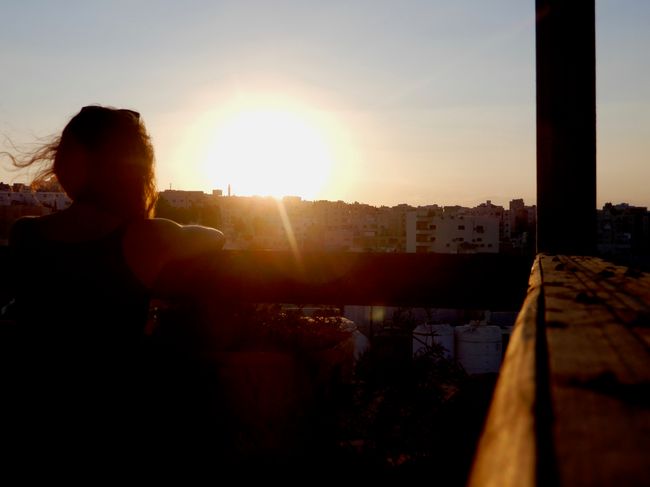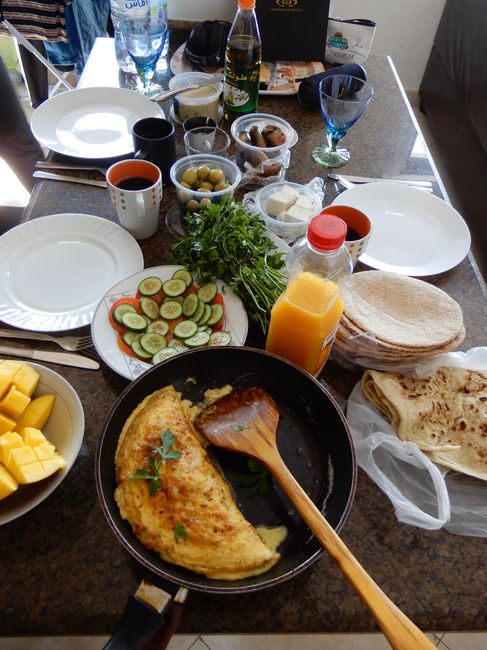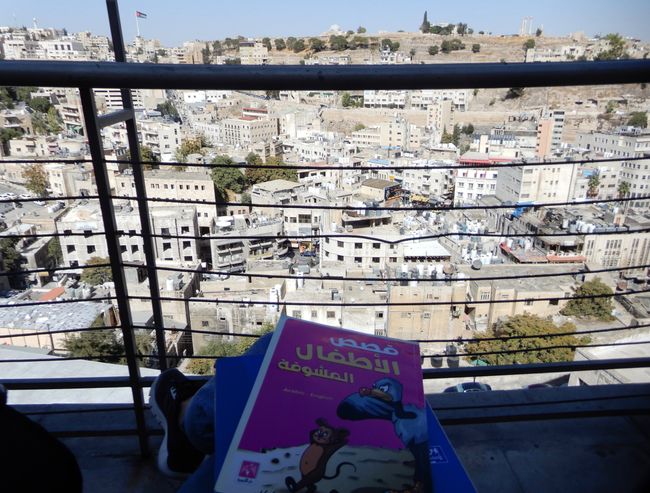Of Squirrels and Kiwis.
יצא לאור: 08.10.2019
הירשם לעדכונים
Sunday, October 6th
8:30 am. It's already a familiar feeling to start the day with a jog. Along steep, busy streets, over high curbs, around the second and first circle, past smelly staircases and fragrant jasmine bushes. There's a bit of everything. In between, the same familiar melody. It comes from small trucks loaded with gas cylinders that drive through Amman all day long, from morning till evening, selling gas and can be recognized by their melody from afar. The same melody. Every day. From morning till evening. I really don't know how the drivers endure it. Deafness would be the only logical explanation.
Today, there's also another sound here that's rather unfamiliar: church bells. It's the first time I hear them here in Amman. It feels just like Sunday at home, which is a bit confusing: Sunday here is actually the first day of the week, a normal working and university day, which is why we still have lectures later. Since our lectures always start at 5pm, it still feels like a day off. So, we take our time for a hearty breakfast: omelette, Makdus, olives, Baladia cheese and Arabic bread, vegetables and Halawa. We lack nothing here.
After breakfast, I show Lea the way to the university and the language course room, and then I sit on the balcony of the Wild Jordan Center during her class, where I can learn a bit of Arabic in peace and with a view of Amman and the university. I have an Arabic-English children's book that I bought for a dinar at one of the street book stands in Downtown. It's about a squirrel that collects nuts. In an hour and a half, I manage to write just one sentence. To my defense, it spans three lines. Slow and steady wins the race, just like the squirrel.
I use the one and a half hours before the next lecture to show Lea Downtown. Down the colorful steps covered with pretty blue-violet umbrellas, past our favorite sandwich shop where we grab a halloumi sandwich to go, past Hashem, the countless shops selling traditional embroidered garments, and the grand mosque, until we reach the market. The smell of fresh vegetables and fruits always brings back feelings of joy. On the other side of the market, I show Lea the store where I bought coffee the day before, and now we have them grind coffee beans and mix them with cardamom. Mmm. The bag we leave the store with is still warm and smells wonderfully energizing.
Half an hour before the lecture starts, we start making our way back, with just one more stop: a street vendor who has built a mountain of kiwis in front of him catches Lea's attention. Before we approach the vendor, we decide not to pay more than one dinar for a box. Adib had just told us the day before what the best strategy for negotiating is: If the price for a product seems too expensive, we should say "Ghali!" - "Expensive!" in Arabic. He said it has a different effect in Arabic. So when the vendor quotes 2.50 JD as the price for a box, it spontaneously comes out of me. While the vendor tries to convince us otherwise, we turn around and keep walking. "Wahid nus!" he calls after us, which means 1.50. By the time we turn around and stand in front of him again, he has reduced the price to one dinar. Adib's strategy works.
In our Mental Health lecture today, we're discussing vulnerable people, those who are particularly helpless and susceptible, with whom we will likely deal with in our future professional lives. Now we're given the group task of identifying different types and groups of vulnerability. My group quickly identifies the classics, which I still remember from my first semester and various institutional visits: women, children, unaccompanied minors, people with disabilities, people from the LGBTQ+ community. Shawqi, who comes from Palestine and has just joined our course today, is also in my group and asks for clarification. He wants to know why we consider these particular groups vulnerable. This small remark is a real eye-opener for me. He's absolutely right: after just one semester of social work, I've become so unquestioningly accepting of common definitions and classifications without giving it further thought. I really hope that in such situations, there's always a Shawqi beside me to wake me up and bring me back to reality.
Excerpt from my children's book today:
Squirrel- سنجاب
Collect- جمع
Hazelnut- بندق
Oak- بلوط
Tree- شجرة
הירשם לעדכונים
תשובה



